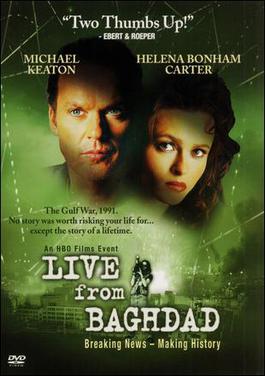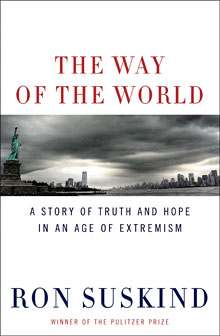
Saddam Hussein Abd al-Majid al-Tikriti was an Iraqi politician and revolutionary who served as the fifth president of Iraq from 1979 to 2003. He also served as prime minister of Iraq from 1979 to 1991 and later from 1994 to 2003. He was a leading member of the revolutionary Arab Socialist Ba'ath Party and later the Baghdad-based Ba'ath Party and its regional organization, the Iraqi Ba'ath Party, which espoused Ba'athism, a mix of Arab nationalism and Arab socialism. He was responsible for numerous human rights abuses including an estimated of 250,000 arbitrary deaths and disappearances. Saddam was convicted for crimes against humanity, specifically for the Dujail Massacre and was sentenced to death by hanging.

Daniel Irvin Rather Jr. is an American journalist, commentator, and former national evening news anchor. He began his career in Texas, becoming a national name after his reporting saved thousands of lives during Hurricane Carla in September 1961. Rather spontaneously created the first radar weather report by overlaying a transparent map over a radar image of Hurricane Carla. In his first national broadcast, he helped initiate the successful evacuation of 350,000 people. He reported on some of the most significant events of the modern age, such as the fall of the Berlin Wall, the Gulf War, 9/11, the Iraq War, and the war on terror.

Lawrence Ari Fleischer is an American media consultant and political aide who served as the 23rd White House Press Secretary, for President George W. Bush, from January 2001 to July 2003.

April Catherine Glaspie is an American former diplomat and senior member of the Foreign Service, best known for her role in the events leading up to the Gulf War.

The 2003 State of the Union Address was given by the 43rd president of the United States, George W. Bush, on January 28, 2003, at 9:00 p.m. EST, in the chamber of the United States House of Representatives to the 108th United States Congress. It was Bush's second State of the Union Address and his third speech to a joint session of the United States Congress. Presiding over this joint session was the House speaker, Dennis Hastert, accompanied by Dick Cheney, the vice president, in his capacity as the president of the Senate.

Live from Baghdad is a 2002 American television war drama film directed by Mick Jackson and co-written by Robert Wiener, based on Wiener's book of the same title. The film premiered on HBO on December 7, 2002, during the prelude stage of the Iraq War.

Plan of Attack is a 2004 book by the American author and investigative reporter Bob Woodward. It was promoted as "a behind-the-scenes account of how and why President [George W.] Bush decided to go to war against Iraq".

Joseph Charles Wilson IV was an American diplomat who was best known for his 2002 trip to Niger to investigate allegations that Saddam Hussein was attempting to purchase yellowcake uranium; his New York Times op-ed piece, "What I Didn't Find in Africa"; and the subsequent leaking by the Bush/Cheney administration of information pertaining to the identity of his wife Valerie Plame as a CIA officer. He also served as the CEO of a consulting firm he founded, JC Wilson International Ventures, and as the vice chairman of Jarch Capital, LLC.

"The wrong war, at the wrong place, at the wrong time, and with the wrong enemy" is General Omar Bradley's famous rebuke in his May 15, 1951 Congressional testimony as the Chairman of the Joint Chiefs of Staff to the idea of extending the Korean War into China, as proposed by General Douglas MacArthur, the commander of the U.N. forces in Korea before being relieved of command by President Harry Truman on April 11, 1951.
The following lists events in the year 2003 in Iraq.
Carole Coleman is an Irish journalist. Originally from Carrick-on-Shannon, County Leitrim, she is a former Washington Correspondent for RTÉ. Carole is a journalism graduate of the Dublin Institute of Technology (DIT). She is presently a reporter for the News at One on RTÉ Radio 1 and teaches Journalism at the University of Galway.
The Saddam–al-Qaeda conspiracy theory was based on false claims by the United States government alleging that a secretive relationship existed between Iraqi president Saddam Hussein and the Sunni pan-Islamist militant organization al-Qaeda between 1992 and 2003. U.S. president George W. Bush used it as a main reason for invading Iraq in 2003.

The White House Iraq Group was a working group of the White House set up in August 2002 and tasked with disseminating information supporting the positions of the George W. Bush administration relating to a possible invasion of Iraq, which would subsequently take place in March 2003.

The trial of Saddam Hussein was the trial of the deposed President of Iraq Saddam Hussein by the Iraqi Interim Government for crimes against humanity during his time in office.
Operation Iraqi Freedom 2003 documents are some 48,000 boxes of documents, audiotapes and videotapes that were discovered by the U.S. military during the 2003 invasion of Iraq. The documents date from the 1980s through the post-Saddam period. In March 2006, the U.S. government, at the urging of members of Congress, made them available online at its Foreign Military Studies Office website, requesting Arabic translators around the world to help in the translation.
This article is a chronological listing of allegations of meetings between members of al-Qaeda and members of Saddam Hussein's government, as well as other information relevant to conspiracy theories involving Saddam Hussein and al-Qaeda.

The Bush–Aznar memo is reportedly a documentation of a February 22, 2003 conversation in Crawford, Texas between US president George W. Bush, Prime Minister of Spain José María Aznar, National Security Advisor Condoleezza Rice, Daniel Fried, Alberto Carnero, and Javier Rupérez, the Spanish ambassador to the U.S. British Prime Minister Tony Blair and Italian Prime Minister Berlusconi participated by telephone. Rupérez transcribed the meeting's details which El País, a Madrid daily newspaper, published on September 26, 2007. The conversation focuses on the efforts of the US, UK, and Spain to get a second resolution passed by the United Nations Security Council. This "second resolution" would have followed Resolution 1441. Supporters of the resolution also referred to it as the "eighteenth resolution" in reference to the 17 UN resolutions that Iraq had failed to comply with.

The Way of the World: A Story of Truth and Hope in an Age of Extremism is a 2008 non-fiction book by Ron Suskind, reporting on various actions and policies of the George W. Bush administration. Most notably, it alleges that the Bush administration ordered the forgery of the Habbush letter to implicate Iraq as having ties to al Qaeda and the hijackers in the September 11 attacks. All these claims have been strenuously denied by the White House and all parties involved. The book, published on August 5, 2008, by Harper, met mixed reviews but received considerable media attention and created controversy.
The Habbush letter, or Habbush memo, is a handwritten message dated July 1, 2001, which appears to show a link between al-Qaeda and Iraq's government. It purports to be a direct communication between the head of Iraqi Intelligence, General Tahir Jalil Habbush al-Tikriti, to Iraqi president Saddam Hussein, outlining mission training which Mohamed Atta, one of the organizers of the September 11 attacks, supposedly received in Iraq. The letter also claims that Hussein accepted a shipment from Niger, an apparent reference to an alleged uranium acquisition attempt that U.S. President George W. Bush cited in his January 2003 State of the Union address.

The interrogation of Saddam Hussein began shortly after his capture by U.S. forces in December 2003, while the deposed president of Iraq was held at the Camp Cropper detention facility at Baghdad International Airport. Beginning in February 2004, the interrogation program, codenamed Operation Desert Spider, was controlled by Federal Bureau of Investigation (FBI) agents. Standard FBI FD-302 forms filed at the time were declassified and released in 2009 under a U.S. Freedom of Information Act request filed by the National Security Archive. Saddam, identified as "High Value Detainee #1" in the documents, was the subject of 20 "formal interviews" followed by five "casual conversations." Questioning covered the span of Saddam's political career, from 2003 when he was found hiding in a "spider hole" on a farm near his home town of Tikrit, back to his role in a failed 1959 coup attempt in Iraq, after which he had taken refuge in the very same place, one report noted.












